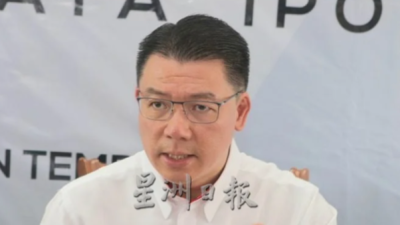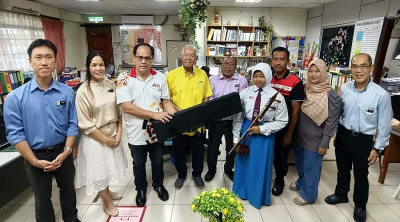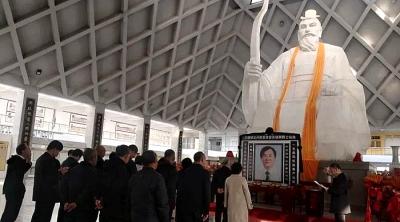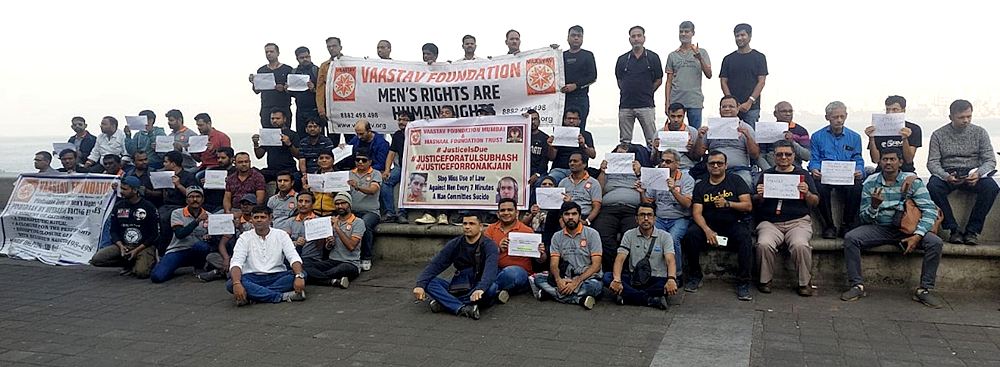
BENGALURU: A Bengaluru man’s dying allegation on social media that he had been falsely accused of domestic violence by his wife has gone viral, and cases like his are now being championed by a small group of men’s rights activists (MRAs) in India.
On Dec 8, Atul Subhash, 34, a deputy manager in an Indian conglomerate in Bengaluru, uploaded an 80-minute video accusing his estranged wife, Nikita Singhania, and her family of filing false reports of cruelty and dowry harassment against him to extort money.
Early the next morning, the Bengaluru police found Subhash dead in his apartment, with a piece of paper on his chest with the words “justice is due”.
He also left behind a 24-page suicide note which details his emotional distress from years of legal battles.
He blamed his death on a judge in Jaunpur, Uttar Pradesh, who replied with a laugh when his wife allegedly dismissed his comments about committing suicide.
At the time of his death, he was in the midst of divorcing Singhania, whom he married in 2019.
On Dec 14, the police arrested Singhania, her mother and brother on charges of abetment of suicide after Subhash’s brother Bikas Kumar filed a report.
Subhash’s notes and video have gone viral on social media.
On Dec 15, Indian MRAs held protests and public memorials in at least five cities across India, demanding that husbands like Subhash be protected from the alleged misuse of laws that are supposed to shield women against dowry and domestic violence.
In Bengaluru’s Freedom Park, a man dressed as a bride with horns and vampire teeth held a placard that said in the Kannada language: “Stop men’s suicide! Stop false cases!”
The walls in the park had posters with a line from Subhash’s video: “Dump my ashes in the gutter outside the court if my harassers are not punished.”
Home Minister of Karnataka G. Parameshwara said the investigation into Subhash’s suicide will look into why his wife “kept filing cases against him”.
He added: “We always talked about women’s rights. (Subhash’s) case has exposed men’s rights. It’s a debate (happening) throughout the country.”
MRAs claim that men in India are oppressed by marriage laws and women who file false reports against them.
They identify the judicial system and organised feminist groups as the primary culprits.
“The judicial and police ecosystem is not humane to men. It does not recognise men’s vulnerabilities,” said Anil Kumar, co-founder of Save Indian Family.
“It forces husbands and men to suffer for years under false domestic violence cases and extortionist alimony demands.”
The men’s rights group has a few hundred members and operates in 12 Indian cities, offering legal counselling and runs helplines for “distressed men”.
Kumar confirmed that Subhash had frequented the weekly meetings of Save Indian Family in Bengaluru since his wife moved out with their four-year-old son.
Many of its members in India’s Silicon Valley are IT professionals and entrepreneurs, he added.
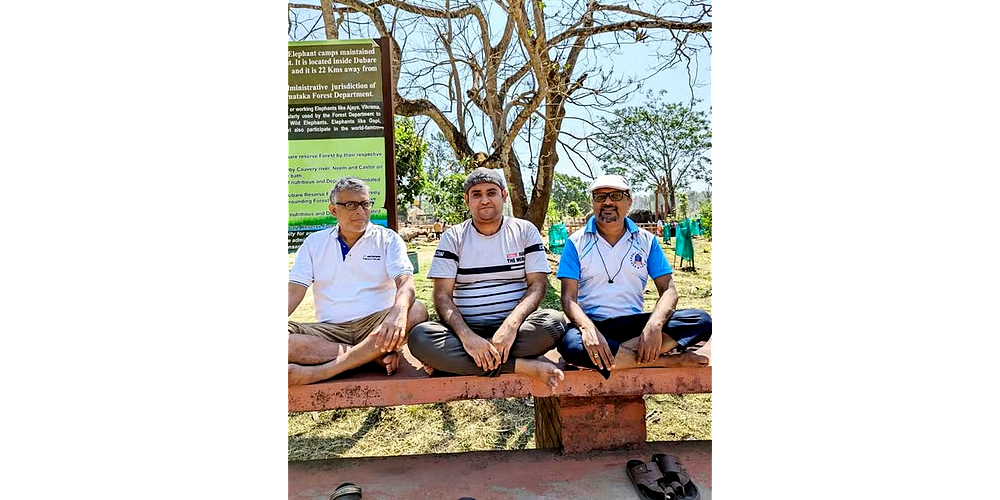
From the early days of scattered solitary actions in the 1990s, MRAs have emerged in India as a well-organised social movement, with careful outreach through social media, legislative lobbying and street action.
MRA groups in Bengaluru and Mumbai said at least 120 to 150 men turn up to their meetings every week, but their social media handles have hundreds of followers.
Professor Srimati Basu, chair of the gender studies department in the University of Kentucky in the US, said: “The men’s rights movement has not had big systematic actions in the last 10 years compared with the decade before.
“But its concerted communication and grassroots meetings in the past decade have made a dent in public and legal discourse.”
She added: “Atul Subhash’s death, though unfortunate and unexpected, seems suddenly to have become a catalysing event, a remobilising moment for the men’s rights movement.”
On Dec 13, Vishal Tiwari, a lawyer associated with MRAs, filed a public interest litigation in the Supreme Court for the “reform of domestic violence and dowry laws to prevent harassment of innocent husbands”.
Although MRAs are often seen in verbal warfare with women’s rights activists on news channels, the groups’ demands range from laws that are fair to both genders to allowing remote attendance in courts to save legal costs.
They also call for a national commission for men.
Some encourage their divorced members to remarry, while others, like Kumar, advocate against marriage and committed relationships with women.
Amit Desphande, founder of Vaastav Foundation, a men’s rights non-profit in Mumbai with 150 people attending weekly meetings, insisted that “it’s not a gender war” but a call for fairness, including the use of gender-neutral terms such as “spouse” in the laws instead of “husband” and “wife”.
“We don’t say the laws protecting women should go away, only that we need strong mechanisms where the misuse of the law is not tolerated, and not all cases are blindly admitted,” he said.
MRAs have a few prominent women allies.
Deepika Narayan Bhardwaj, in collaboration with Save Indian Family chapters across the country, has screened her documentaries profiling men traumatised by alimony payments and false rape allegations.
“I am dismissed by women’s rights activists, but we can’t throw men under the bus to protect women. By dismissing the misuse of laws by women, feminists are doing a disservice to genuine women victims, who are not believed because of some liars,” Bhardwaj said.
Like most MRAs, Deshpande and Kumar began their work on men’s rights after they faced litigation during their marital separation.
Bhardwaj’s journey also began after she faced multiple accusations of cruelty and demands for dowry by her brother’s former wife.
Women’s rights advocates say that MRA claims of widespread misuse of dowry and domestic violence laws are exaggerated.
And when it comes to rights, women in India fare much worse than men. On the Gender Inequality Index 2022, India ranked 108 out of 193 countries.
Even though demanding dowry is a crime, national records show that around 20 women die in dowry-related harassment and violence every day, by murder or forced suicide.
Around 85 rapes are reported daily but only 28 per cent end in conviction.
The rate of suicide among the men is “a big, impactful talking point for MRAs”, Prof. Basu said.
All the activists ST spoke to quoted official statistics that 83,713 married men in India died by suicide in 2022 compared with 30,771 women during the same period.
But there is no evidence to blame the rate on marital or divorce problems alone.
The World Health Organisation attests that globally, more than twice as many males die due to suicide as females, identifying the risk factors as a complex interplay of job loss, financial stress, gender roles and social isolation.
“Marriage or divorce problems cannot alone be held responsible for a married man’s suicide in all reported cases,” Prof Basu said.
ADVERTISEMENT
ADVERTISEMENT












